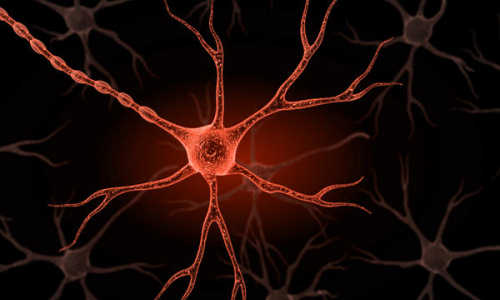The nervous system may play a bigger role in infections and autoimmune diseases than previously known. If researchers can learn more about that role, it could provide insight into diagnosing and treating everything from the stomach flu to rheumatoid arthritis.
Researchers at St. Michael’s Hospital in Toronto, in conjunction with the Feinstein Institute for Medical Research in Manhasset, N.Y., reviewed the latest, most vigorous pre-clinical trials on this topic in a commentary published Thursday (Nov. 27) in the New England Journal of Medicine.
They noted that neurons of the peripheral nervous system – specialized nerve cells that transmit information throughout the body – are known to send information about local infections or inflammation to the central nervous system (the brain and spinal cord) so the CNS can co-ordinate the whole body response.
Dr. Benjamin Steinberg, a post-doctoral fellow and an anesthesiology resident at St. Michael’s, hypothesized that the neurons may be sending the CNS not just a general Danger Warning but specific information about whether the infection is caused by a virus or bacteria, the type of bacteria present or the nature of the auto-immune reaction.
Basic science researchers are now trying to decipher that “neural code” of information being sent by neurons.
“The blue sky idea is that if we know the language and can read the code, in theory we can engineer or write our own,” said Dr. Steinberg, writing with coauthors Dr. Arthur Slutsky, vice-president of research at St. Michael’s and Dr. Kevin Tracey, president of the Feinstein Institute.
Since those messages are being sent from neurons to the CNS in real time, knowing what they’re saying could speed diagnoses or prognostication, which would be especially important in pandemics or outbreaks of particularly contagious or deadly diseases, such as flu, Ebola or SARS. The current method for confirming infections is to test body fluids or tissues, sometimes using invasive techniques, a process that can take hours, days or even longer. Moreover, Dr Steinberg said researchers might even be able to tell how severe an infection is and how the illness is expected to progress without treatment.
“Timely diagnosis and intervention are essential to minimize deaths and complications,” said Dr. Steinberg. “If the neurons are reading this information from an infection in the blood or the liver and we can interrogate the nervous system, we can make a diagnosis in real time. For example, we could perhaps tell quickly whether someone has the flu virus or bacterial pneumonia, which would determine whether antibiotics would be appropriate. At the extreme, a patient in septic shock requires prompt administration of antibiotic agents since each hour of delay is associated with a 7.6 per cent increase in mortality, but physicians do not always know what bacterium they need to target. An inappropriately chosen antibiotic can have serious ramifications for patient well-being.”
It’s already possible to intercept and change some messages being sent to the CNS using bioelectric therapy. When injured, pain receptors send messages to the CNS that are registered as pain. Bioelectric therapy relieves pain by interrupting pain signals before they reach the brain. It also prompts the body to produce endorphins, which help to relieve pain.
Story Source:
The above story is based on materials provided by St. Michael’s Hospital.





